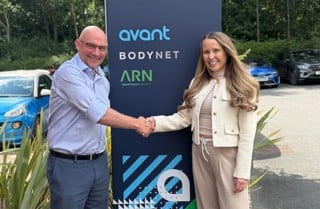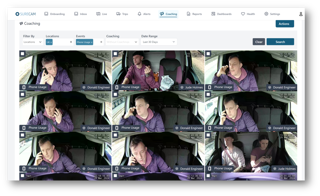If there is one thing businesses and the logistical network of the UK is used to, it is the unexpected - especially where weather is concerned at (increasingly) any time of the year.
Just this week, Storm Eleanor caused power cuts, travel disruption and flooding across the UK and Ireland.
While those at home have the option to make alternative arrangements, drivers rarely have this option, with the 'business as usual' mantra demanding that targets and delivery rates are still met.
However, considerations about productivity cannot overtake staff safety.
Those out there driving for work purposes often have no alternative and are facing increased risk from falling objects, as well as the weather itself.
While the normal duty of care employers have for all of their staff should apply at all times, extreme weather puts a greater onus on ensuring that a full spectrum of real-time support is in place for those out on the road.
Allowing considerations about profit or delivery to overshadow this should never happen - simple.
Vehicle tracking is just one key tool that helps facilitate this enhanced duty of care.
It allows fleet managers access to information surrounding all alternative routes, live ETAs so if there are any delays due to extreme weather they can let their customers know as well as allowing managers to proactively monitor in real-time the safety of their drivers.
This is a vital thread of employer responsibility that must be recognized and acted upon at times such as these.
Indeed, technology that provides quieter alternative routes is available, which not only meets the safety needs of drivers but helps maintain the desired service level - an ideal combination that provides an added guarantee of efficiency as well as peace of mind.
Cumbria Blood Bikes, a registered charity with a fleet of eleven vehicles used vehicle tracking to help them do exactly this - improve and boost their duty of care processes for drivers, as group treasurer, Ian Beattie, confirms:
"In Cumbria and the surrounding areas, we regularly experience volatile, severe weather conditions during the winter months.
"Previously our drivers were reliant on validating their whereabouts by calling or texting controllers, which was often difficult especially when driving through extreme weather.
"Tracking is so simple and easy to use, we knew instantly which parts of the system would really benefit us and expert trainers then tailored our training to the areas that we needed."
Taking risks can be a good thing sometimes but where the safety and well-being of drivers is concerned, this does not apply!
Anticipating the unexpected is never straightforward but by - mind the pun - keeping a proper track on their movements and safety as part of a wider approach to managing responsibly, lives can be properly protected.
By Chris McClellan chief executive at RAM Tracking



















Login to comment
Comments
No comments have been made yet.